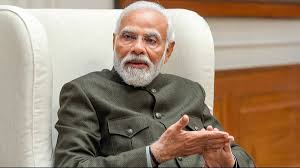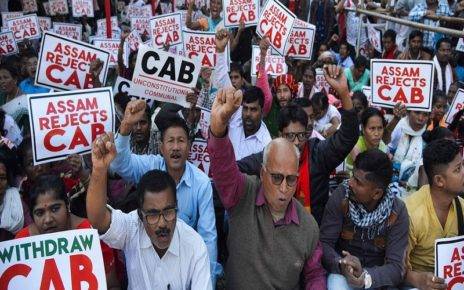In a surprising turn of events, Indian Prime Minister Narendra Modi’s Bharatiya Janata Party (BJP) faced significant losses in crucial states, altering the political landscape that it had dominated for the past decade.
Despite emerging as the single-largest party in the Lok Sabha, India’s lower house of parliament, the BJP fell short of securing a national majority, a departure from its previous electoral triumphs. In the latest tally, the BJP was projected to attain around 240 seats, well below the 272-seat threshold needed for a majority.
Contrary to expectations from exit polls, the opposition INDIA alliance, spearheaded by the Congress party, exceeded predictions by securing over 200 seats. This unexpected outcome reshapes the political narrative, necessitating the BJP to seek alliances to form the next government.
Modi’s assurance of forming the next government, voiced amidst the election results, underscores the pivotal role of coalition politics in India’s governance. With the BJP and its allies falling short of a clear majority, the dynamics of governance are poised for a significant shift.
Analysts suggest that the electoral verdict poses critical questions regarding the BJP’s campaign strategy. While Modi emphasized divisive rhetoric centered around religious polarization, the opposition directed attention to pressing economic concerns such as inflation and unemployment, resonating with voters’ apprehensions.
The BJP’s ambitious campaign slogan, “Abki baar, 400 paar (This time, more than 400),” reflected a tone of overconfidence, failing to address the electorate’s substantive grievances. The outcome underscores a disconnect between the BJP’s narrative and the ground realities faced by Indian citizens.
The election verdict draws parallels with the 2004 elections, where the BJP, despite favorable exit poll predictions, faced defeat at the hands of the Congress party. While the BJP remains the dominant force in parliament, the need for coalition partnerships signals a departure from its previous unilateral governance.
Beyond parliamentary implications, a weakened mandate could herald a recalibration of India’s democratic institutions, fostering a more inclusive and collaborative approach to governance. The shift towards coalition-based governance offers a potential avenue for diverse voices to influence policy decisions.
As India navigates this new political landscape, introspection within the BJP is inevitable. The leadership duo of Modi and Amit Shah will face scrutiny, necessitating a reevaluation of their approach and engagement with diverse stakeholders.
Amidst the political flux, the election outcome resonates with marginalized communities, offering a glimmer of hope for a more inclusive and participatory democracy. For many, the result signifies a collective assertion against authoritarian tendencies, heralding a renewed sense of empowerment and resilience within civil society.
As the dust settles, the BJP’s recalibration and India’s embrace of coalition politics herald a new chapter in the nation’s democratic journey, characterized by collaboration, inclusivity, and responsiveness to citizens’ aspirations.





